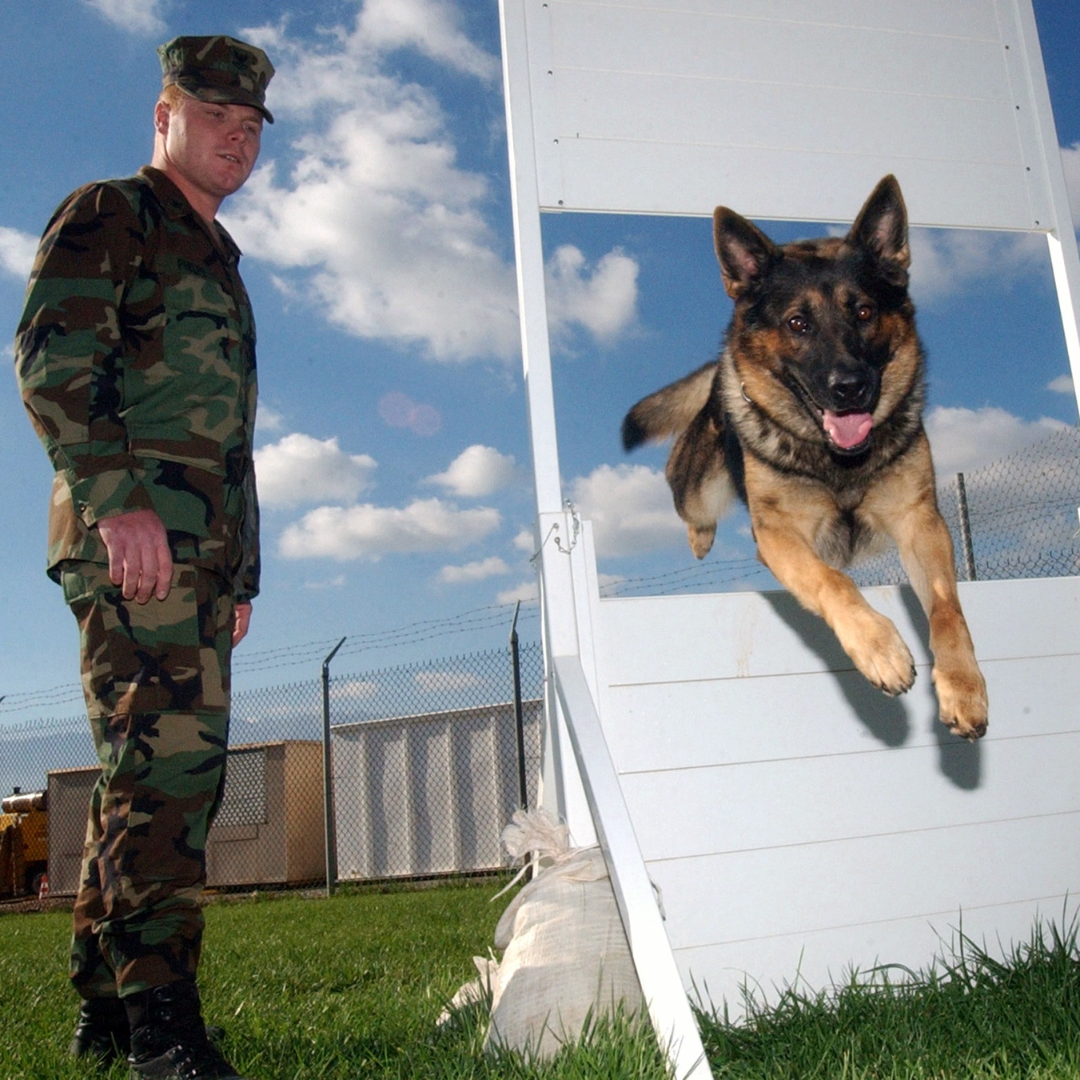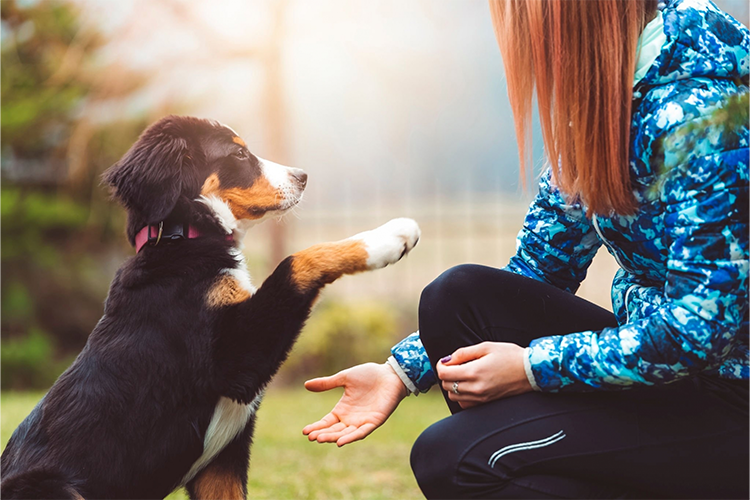The Ultimate Overview to Dog Training Charlotte: Methods for Success
The Ultimate Overview to Dog Training Charlotte: Methods for Success
Blog Article
Transform Your Dog With Specialist Pet Educating Tips and Techniques
Effective canine training is a crucial element in supporting a loyal and well-mannered friend. Understanding the subtleties of canine habits, including their body language and instinctual drives, permits a more tailored training method that promotes far better communication and depend on. By implementing key strategies such as uniformity and favorable reinforcement, family pet proprietors can browse usual difficulties that arise during the training procedure. The journey does not end there; the details of constructing a solid bond with your pet dog can significantly influence the training end results. What are one of the most efficient strategies to make certain lasting success?
Comprehending Pet Dog Actions
How can comprehending canine actions improve the training procedure? By analyzing these signals, instructors can tailor their method to meet the details demands of each canine, cultivating a more effective training environment.
Recognizing signs of excitement, concern, or tension allows instructors to change methods, making certain that the pet dog stays engaged and ready to discover. For example, if a pet shows indications of anxiety throughout a training session, it may be essential to change the setting or speed to minimize discomfort.
Additionally, comprehending the natural impulses and social structures of pet dogs can educate training strategies. Knowing that pets are pack pets helps fitness instructors incorporate socializing and synergy right into their sessions.

Crucial Training Strategies
Reliable pet training counts on a selection of essential techniques that establish clear communication in between the pet dog and the instructor. These methods are fundamental and offer to develop an organized atmosphere conducive to finding out.
One of one of the most efficient approaches is consistency. A regular approach guarantees that the pet dog recognizes expectations and can prepare for actions. Using a set of standardized commands and signs is critical; this stops confusion and cultivates a reputable communication network.
Timing is an additional essential element. Immediate responses, whether restorative or favorable, helps the pet associate actions with results. This enhances knowing and urges preferred behaviors.
Additionally, establishing a regimen can substantially boost training efficiency. Dog training. Routine training sessions, set up at the same time each day, assistance canines to involve and expect in discovering activities, consequently strengthening great practices
Last but not least, preserving a tranquility and assertive behavior throughout training sessions is important. Dogs are extremely observant to human feelings and body language, and a fitness instructor's self-confidence can impart trust and willingness to discover.
Incorporating these important strategies prepares for an effective training experience, advertising an unified partnership in between the dog and its proprietor.
Positive Reinforcement Techniques
Structure on the foundation of clear interaction established via important training techniques, positive support strategies play a critical function in forming desired actions in dogs. This technique fixate fulfilling pet dogs for displaying actions you intend to encourage, therefore enhancing the likelihood of these behaviors being repeated.
Reliable benefits can consist of treats, praise, or play, relying on what motivates your pet dog most. Timing is essential; incentives must be provided quickly complying with the desired actions to develop a clear organization in the canine's mind. If you desire to teach your pet dog to sit, reward them as soon as they lower their rear to the ground.
In addition, varying your benefits can keep your pet involved and motivated. Use high-value deals with for challenging habits and simpler incentives for well-established commands. It is likewise crucial to gradually eliminate treats as the behavior ends up being consistent, transitioning to verbal praise or other non-food incentives.
Usual Training Obstacles
Numerous dog proprietors experience different training obstacles that can hamper progression and result in disappointment. One common problem is disparity in commands or hints. When owners do not make use of the exact same words or gestures consistently, canines may come to be find out here now confused and fall short to understand what is anticipated of them.
Another difficulty is the absence of emphasis or attention from the dog. Distractions in the atmosphere, such as various other pets or loud noises, can divert a dog's focus, making it hard to strengthen preferred behaviors (dog training charlotte nc). This can be especially problematic in public setups or during team training sessions

Behavior concerns, such as too much jumping or barking, can likewise impede training progression. Addressing these problems requires a tailored technique that integrates comprehending the origin with carrying out effective training methods. Identifying and attending to these typical difficulties can bring about a more effective and fulfilling training experience for both the proprietor and the pet dog.
Building a Strong Bond
A strong bond in between a pet dog and its proprietor is essential to successful training and general wellness. This psychological connection enhances interaction, depend on, and mutual regard, making the training procedure a lot more reliable. To build this bond, consistency and favorable support are vital aspects. Regular regimens offer canines with a complacency, enabling them to grow in their setting.
Taking part in normal, satisfying activities such as strolls, play, and training sessions reinforces the partnership. These common experiences not only strengthen positive habits however additionally produce lasting memories that cultivate friendship. In addition, comprehending your pet dog's body language and psychological cues can aid in customizing your technique to their distinct character, establishing a go to website deeper link.
Additionally, patience is critical. Developing a bond takes time, and acknowledging tiny success in your pet dog's habits can motivate more progress. Constantly approach training with a positive mindset, as pet dogs are very responsive to their owner's emotions. By spending time in understanding and nurturing this bond, owners will uncover that training comes to be a rewarding experience, resulting in a well-adjusted and delighted dog. Inevitably, a solid bond lays the structure for long-lasting friendship and reliable training end results.
Verdict
Finally, effective pet dog training includes an understanding of canine behavior, the implementation of essential strategies, and making use of favorable reinforcement methods. Resolving typical training challenges is crucial for fostering an efficient training setting. Ultimately, developing a strong bond through constant routines and engaging activities not only boosts interaction yet also grows mutual regard and trust fund in between the canine and trainer. This all natural method guarantees a mannerly buddy, improving the general partnership.
Exactly how can recognizing canine habits enhance the training process?A solid bond between a pet and its owner is fundamental to successful training and general well-being. Constantly strategy training with a positive mindset, as canines are extremely responsive to their owner's feelings. By investing time in understanding and nurturing this bond, proprietors will discover that training this website ends up being a fulfilling experience, leading to a well-adjusted and satisfied pet dog.In conclusion, efficient canine training includes an understanding of canine habits, the application of crucial techniques, and the usage of favorable support approaches.
Report this page